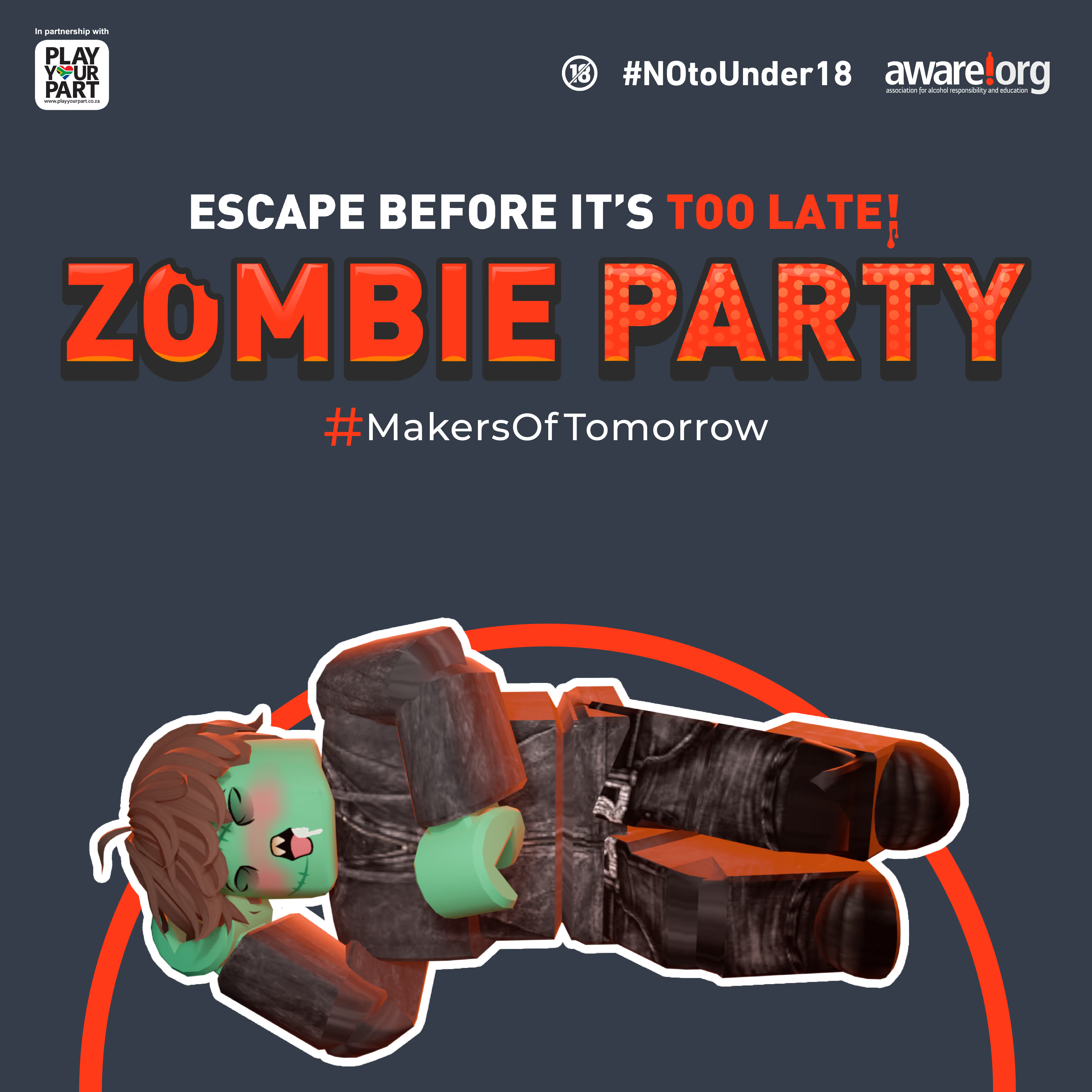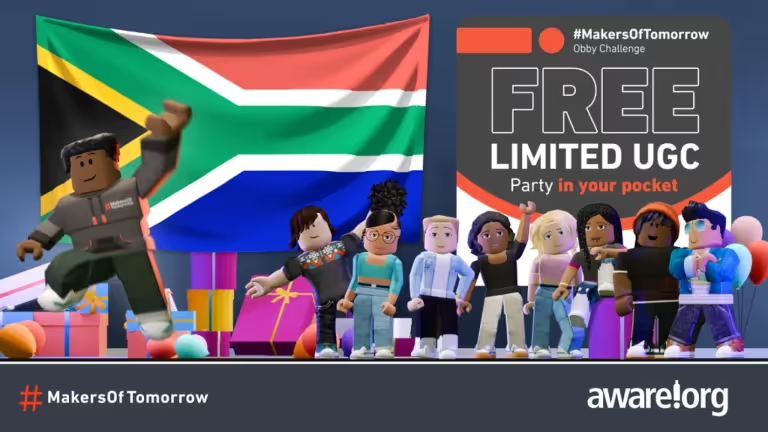July 1, 2025

Featured
Colour, Courage and Commitment as Youth Month Closes with #NOtoU18 Celebration at Thulani Primary School
On 30 June 2025, the grounds of Thulani Primary School burst into colour and energy as AWARE.org and Altus Sport hosted a Youth Month close-out event that went beyond celebration — it was a call to action. Under the banner of the #NOtoU18 campaign, learners, teachers, volunteers, and community members came together to champion youth leadership, literacy, and healthy choices. From planting vegetables to reading stories and pledging against underage drinking, the day embodied what it truly means to invest in young lives.
June 20, 2025

From touch rugby fields to classroom gardens, AWARE.org’s #NOtoU18 campaign is nurturing a generation of changemakers. By offering safe spaces, mentorship, and life skills, they are not only steering youth away from underage drinking but helping them discover purpose, pride, and potential in themselves — and in each other.
June 6, 2025

June 4, 2025

May 21, 2025

May 2, 2025

AWARE.org’s 2023/24 annual report highlights a bold year of innovation, community impact, and measurable progress in reducing alcohol-related harm across South Africa. From gamified learning to rehabilitation partnerships, here’s how a whole-of-society approach is reshaping the nation’s drinking culture.
April 25, 2025

April 17, 2025

April 1, 2025

March 31, 2025

March 20, 2025

March 3, 2025

February 12, 2025

February 10, 2025

December 9, 2024

December 5, 2024

This festive season, AWARE.org’s innovative road safety campaign draws inspiration from reality TV to reveal the devastating consequences of drunk driving. Through stories of regret and loss, the campaign delivers a powerful message: make smarter choices and ensure joy, not tragedy, on South Africa’s roads.
November 22, 2024

AWARE.org is breaking barriers with Roblox: Party in Your Pocket, an innovative game tackling underage drinking in South Africa. Designed to turn tough conversations into engaging experiences, this proudly South African initiative empowers families and teens to make informed decisions while fostering meaningful dialogue.
November 7, 2024

October 15, 2024

September 23, 2024

AWARE.org calls on all South Africans to honour Heritage Month by fostering responsible alcohol consumption through the spirit of Ubuntu. Their initiatives focus on sober pregnancies, underage drinking prevention, and road safety, working with stakeholders across the country to build a safer, healthier future for all.
September 6, 2024

South Africa faces a critical challenge with Fetal Alcohol Spectrum Disorders (FASD), a preventable condition with a national prevalence rate of 11%. AWARE.org, in partnership with FARR, is launching the "Reveal the Truth" campaign to raise awareness, promote alcohol-free pregnancies, and support at-risk communities.
August 21, 2024

This Women's Month, Aware.org honors the remarkable women driving harm reduction in the alcohol industry. These professionals, who are also mothers, daughters, and friends, dedicate themselves to creating safer communities and fostering positive change. Their stories inspire us to join their mission for a healthier, more compassionate world.
August 2, 2024

AWARE.org convened a crucial roundtable at GIBS Business School on 26 July 2024, addressing the issue of underage drinking in South Africa. Representatives from various sectors discussed the alarming statistic that 19.9% of youth report consuming alcohol by age 13, underscoring the need for collective action.
July 26, 2024

In the first half of 2024, AWARE.org's initiatives have significantly increased awareness about the dangers of underage drinking, with a 59% rise in knowledge among participants and 71% committing to reduce or abstain from alcohol. The success of these programmes, including the ICAN Programme by SANCA National and the Golden Harvest Underage Drinking Rehabilitation Programme, highlights the impact of targeted interventions in fostering healthier choices among young people.
July 4, 2024

Our team is thrilled to share the start of the exciting #MakersOfTomorrow campaign that is geared to amplify AWARE.org’s flagship #NOtoUnder18 pillar to all stakeholders. You’ll be hearing about why and how we’re addressing underage drinking across radio, television, print, online media as well as the gaming space.
June 16, 2024

June 3, 2024

AWARE.org's "Drunk Drivers Stay Free" campaign has taken the world by storm, winning prestigious international awards and proving that South African NGOs can lead impactful social change with creativity and innovation. The campaign's clever mock travel ads, highlighting the harsh reality of spending the holidays in jail due to drunk driving, captured massive attention. Garnering over 39,000 interactions, reaching 10 million radio listeners, and achieving a media reach valued at R216 million, this initiative showcases the power of bold partnerships and imaginative strategies in promoting road safety.
May 16, 2024
**Join RoVille Rescue: Crush Underage Drinking!** Step into RoVille Rescue on Roblox and help combat underage drinking! This engaging game challenges young adventurers to make informed choices about alcohol. "By launching RoVille Rescue, we're reaching out to young audiences right where they are," says Mokebe Thulo, Head of Brand at AWARE.org. Be part of the #NOtoU18 movement and help create safer, alcohol-free environments for adolescents. Let's build a brighter, sober future together!
April 26, 2024

April 22, 2024

Step into the virtual bar, toss back a few drinks, and then buckle up for a sobering reality check. Aware.org's Drunk Goggles simulator isn't just another game; it's a life-saving wake-up call. Say goodbye to misconceptions and hello to hard-hitting truths about the dangers of driving under the influence. Are you ready to be part of the revolution in road safety?
March 28, 2024

March 19, 2024

Aware.org Commemorates Human Rights Day by reinforcing commitment to responsible alcohol consumption
30 years of democracy, 30 years of progress – and the journey continues. As South Africa marks Human Rights Day, Carmen Mohapi, Managing Director of Aware.org, calls for a renewed focus on alcohol harm reduction to safeguard the rights to health and safety for all.
February 19, 2024

As National Pregnancy Awareness Week approaches (10-16 February), Aware.org takes a crucial stand against Fetal Alcohol Spectrum Disorders (FASD). Partnering with the Foundation for Alcohol Related Research, we're committed to reducing birth defects caused by alcohol during pregnancy. South Africa faces the highest reported rate of FASD globally, a pressing public health concern. Carmen Mohapi, Managing Director of Aware.org, emphasizes, 'No amount of alcohol is safe during pregnancy.' Let's break the stigma, support pregnant women, and decrease FASD births. Join us during National Pregnancy Awareness Week and World Birth Defects Day to make a meaningful impact on countless lives.
January 22, 2024

December 18, 2023

Celebrate the holidays responsibly this year! Choose the #AlwaysOn mindset over the #IrresponsibleOffender label. Imagine the cheer if road accidents halved—our collective actions matter. Let's steer clear of alcohol behind the wheel, making roads safer for everyone. Join the movement towards responsible driving—it's a journey worth taking. From designated offender to responsible driver, the choice is ours. Let's make this holiday season merry and safe for all!
December 8, 2023

November 22, 2023

November 10, 2023
.avif)
Navigate responsibly through South Africa's roads – the choice is yours: Designated Driver or Designated Offender? Irresponsible drinking and driving are avoidable, and the statistics prove it. Join the collective effort with Aware.org in enforcing safety measures and embracing evidential blood alcohol testing.
October 18, 2023

September 6, 2023

August 30, 2023
.avif)
August 29, 2023

August 28, 2023

August 10, 2023

August 8, 2023

August 1, 2023


Alcohol Consumption Calculator
Calculate with Confidence
By inputting your individual consumption metrics, such as the type of alcohol, quantity consumed, and frequency, you can gain a comprehensive understanding of how alcohol affects your overall well-being. Our tool considers various factors, including your weight, age, and gender, to provide an accurate assessment of the impact on your liver, cardiovascular system, and overall health. This awareness can help you make informed decisions and develop responsible drinking habits.
Media
View our latest interviews and promotional material on YouTube
.avif)
